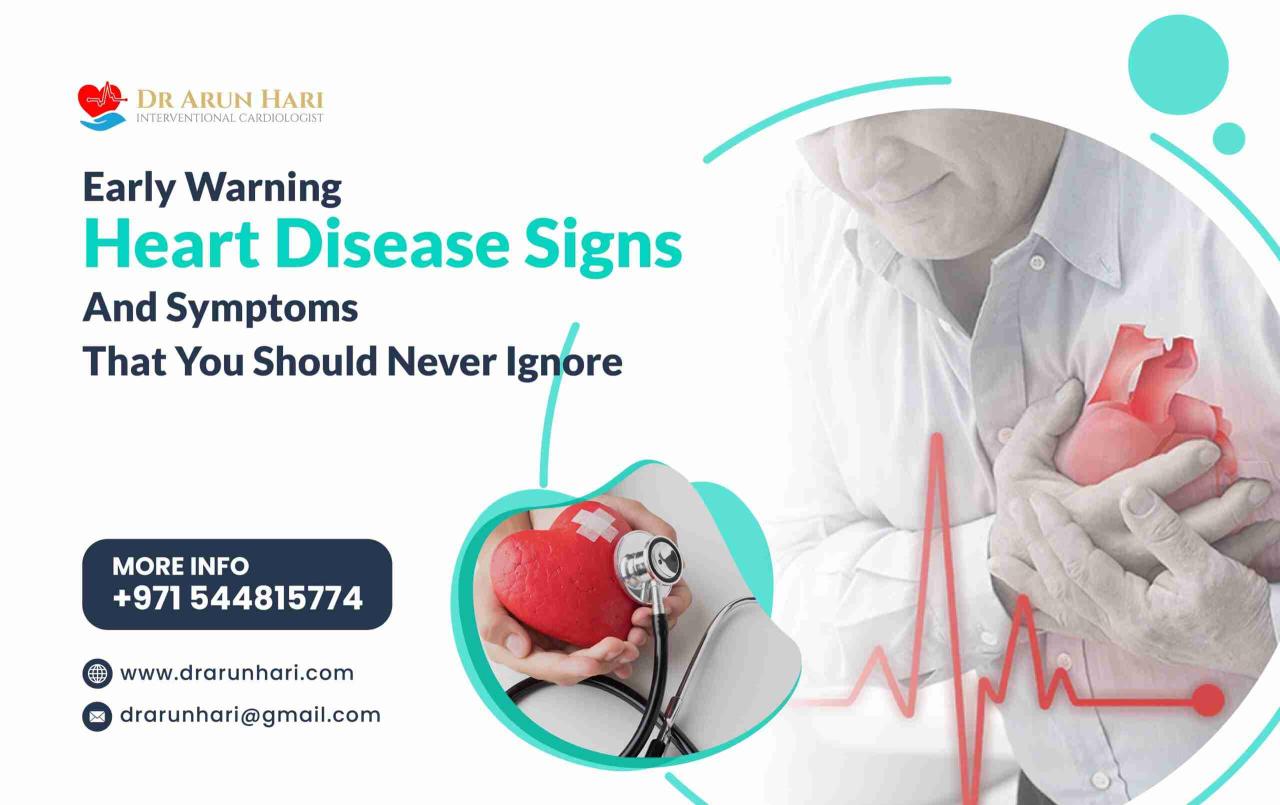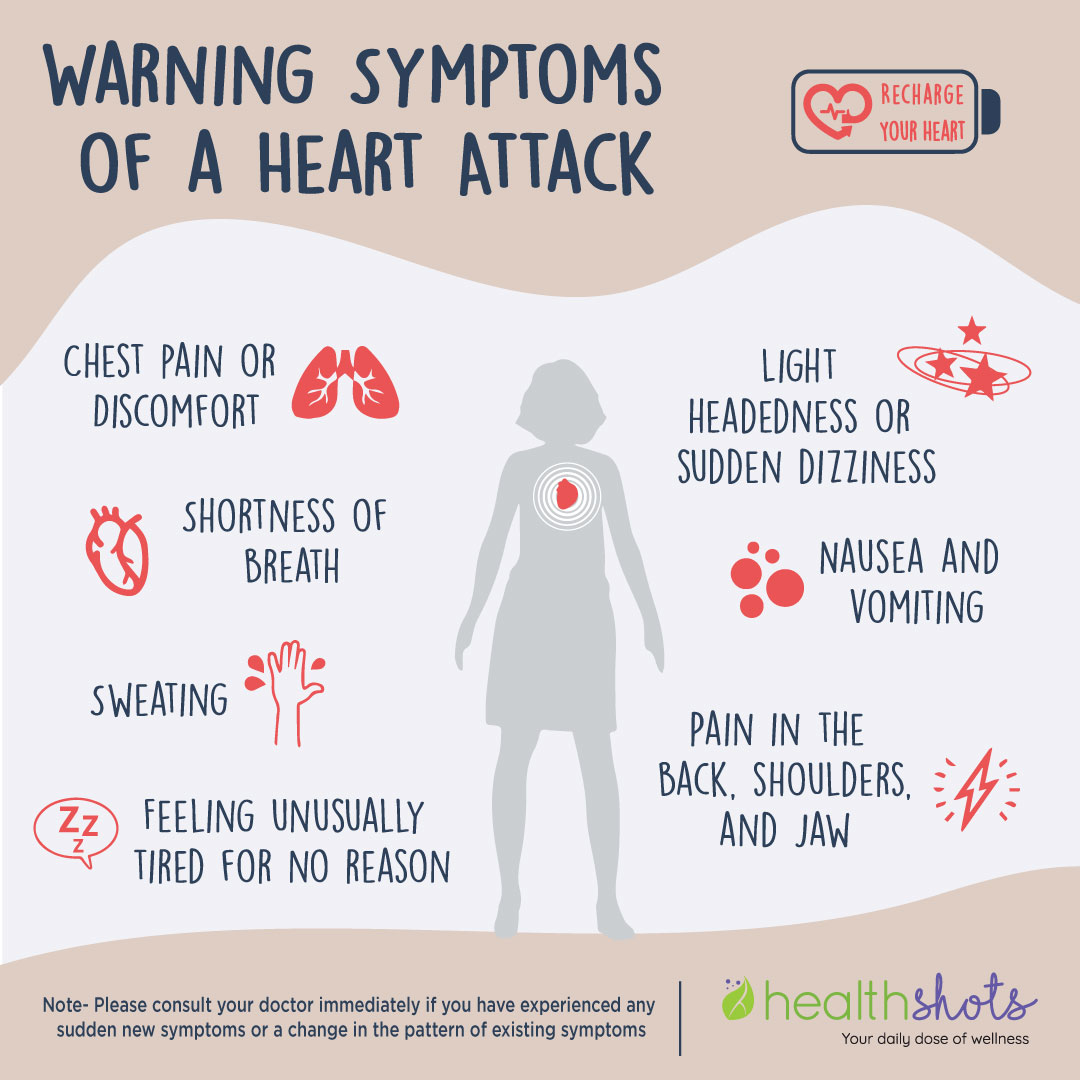Early warning signs of poor cardiovascular health: Recognizing the Red Flags
Exploring the realm of cardiovascular health, this article sheds light on the early warning signs that should not be overlooked. Brace yourself for a journey filled with crucial insights and practical advice to safeguard your heart's well-being.
Delve into the list of symptoms, lifestyle influences, importance of health check-ups, and more to equip yourself with the knowledge needed to prioritize your cardiovascular health.
Early warning signs of poor cardiovascular health

Recognizing early warning signs of poor cardiovascular health is crucial for timely intervention and prevention of serious heart issues.
Common Symptoms of Poor Cardiovascular Health
Here are some common symptoms that may indicate poor cardiovascular health:
- Chest pain or discomfort
- Shortness of breath
- Fatigue
- Irregular heartbeat
- Dizziness or lightheadedness
Influence of Lifestyle Factors
Lifestyle factors such as diet and exercise play a significant role in influencing cardiovascular health. A diet high in saturated fats, cholesterol, and sodium can increase the risk of heart disease. Regular exercise helps maintain a healthy weight, lower blood pressure, and reduce cholesterol levels.
Importance of Regular Health Check-ups
Regular health check-ups are essential in identifying early signs of cardiovascular issues. Routine screenings can help detect high blood pressure, high cholesterol, and other risk factors before they lead to serious heart problems. Early detection allows for timely intervention and better management of cardiovascular health.
Risk factors for poor cardiovascular health

Several key factors contribute to the development of cardiovascular problems, including genetics, lifestyle choices, and environmental factors.
Genetics and Cardiovascular Health
Genetics can play a significant role in predisposing individuals to cardiovascular issues. Family history of heart disease, high blood pressure, or high cholesterol can increase the risk of developing cardiovascular problems.
Smoking and Cardiovascular Health
Smoking is a major risk factor for poor cardiovascular health. The chemicals in tobacco smoke can damage the blood vessels and heart, leading to conditions such as atherosclerosis, heart attack, and stroke.
Alcohol Consumption and Cardiovascular Health
Excessive alcohol consumption can also have a negative impact on cardiovascular health. It can raise blood pressure, increase the risk of heart disease, and contribute to conditions like cardiomyopathy.
Stress and Cardiovascular Health
Chronic stress can take a toll on the heart and blood vessels, increasing the risk of cardiovascular problems. Stressful situations can lead to elevated blood pressure, inflammation, and unhealthy coping mechanisms such as overeating or substance abuse.
Diagnostic tests for assessing cardiovascular health

When it comes to evaluating cardiovascular health, various diagnostic tests play a crucial role in providing valuable insights into an individual's heart function and overall cardiovascular well-being.
Electrocardiogram (ECG)
An ECG is a non-invasive test that records the electrical activity of the heart. It helps detect abnormal heart rhythms, heart attacks, and other heart-related conditions by measuring the electrical impulses that control the heart's contractions.
Echocardiogram
An echocardiogram uses sound waves to create images of the heart's structure and function. This test can identify problems with the heart valves, chambers, and overall heart function, providing important information for diagnosing cardiovascular diseases.
Stress Tests
Stress tests involve monitoring the heart's activity while the patient exercises or undergoes physical stress. These tests help assess the heart's response to increased workload and can detect coronary artery disease, heart rhythm abnormalities, and other cardiac issues
Blood Pressure Readings and Cholesterol Levels
Regular monitoring of blood pressure readings and cholesterol levels is essential for evaluating cardiovascular risk. High blood pressure and elevated cholesterol levels are major risk factors for heart disease, making them crucial indicators of overall cardiovascular health.
Imaging Techniques: CT Scans and MRIs
Advanced imaging techniques like CT scans and MRIs provide detailed images of the heart and surrounding blood vessels. These tests can help diagnose conditions such as coronary artery disease, heart valve problems, and structural abnormalities, offering valuable insights into a patient's cardiovascular health.
Prevention strategies for maintaining cardiovascular health
Maintaining cardiovascular health is crucial for overall well-being and longevity. By incorporating healthy habits into your lifestyle, you can reduce the risk of developing heart issues. Here are some prevention strategies to help you maintain a healthy heart:
Dietary recommendations for a heart-healthy lifestyle
Eating a balanced diet plays a significant role in preventing cardiovascular diseases. Here are some dietary recommendations for a heart-healthy lifestyle:
- Include plenty of fruits and vegetables in your meals for essential vitamins and minerals.
- Choose whole grains over refined grains to increase fiber intake and improve heart health.
- Opt for lean proteins like fish, poultry, and legumes instead of red meat.
- Limit saturated and trans fats by choosing healthy fats like olive oil, nuts, and avocado.
- Reduce salt intake to help lower blood pressure and decrease the risk of heart disease.
Tips for incorporating regular physical activity into daily routines
Regular physical activity is key to maintaining cardiovascular health. Here are some tips to help you incorporate exercise into your daily routine:
- Find activities you enjoy, such as walking, cycling, or dancing, to make exercise more enjoyable.
- Set realistic goals and create a workout schedule to stay consistent with your fitness routine.
- Take the stairs instead of the elevator and park farther away to increase daily movement.
- Join group fitness classes or workout with a friend to stay motivated and accountable.
- Aim for at least 150 minutes of moderate-intensity exercise per week to improve heart health.
Importance of stress management and mental well-being in preventing cardiovascular issues
Stress and mental well-being can significantly impact cardiovascular health. Here's why managing stress is essential for preventing heart issues:
- Practice relaxation techniques like deep breathing, meditation, or yoga to reduce stress levels and promote mental well-being.
- Avoid unhealthy coping mechanisms like smoking or overeating, which can increase the risk of heart disease.
- Seek support from loved ones, a therapist, or support groups to manage stress and improve emotional health.
- Engage in activities you enjoy, such as hobbies, reading, or spending time outdoors, to boost mood and reduce stress.
- Prioritize self-care and make time for relaxation to protect your heart and overall health.
Conclusion
As we conclude this discussion on early warning signs of poor cardiovascular health, remember that staying proactive and informed is key. By recognizing these signs and taking necessary preventive measures, you can pave the way towards a healthier heart and a better quality of life.
FAQs
What are the common symptoms of poor cardiovascular health?
Common symptoms include chest pain, shortness of breath, fatigue, dizziness, and irregular heartbeat.
How can diet and exercise impact cardiovascular health?
A healthy diet and regular exercise can help maintain a healthy weight, lower blood pressure, reduce cholesterol levels, and improve overall heart function.
What role does stress play in cardiovascular health?
Chronic stress can contribute to high blood pressure, heart disease, and other cardiovascular issues. Managing stress is crucial for heart health.




